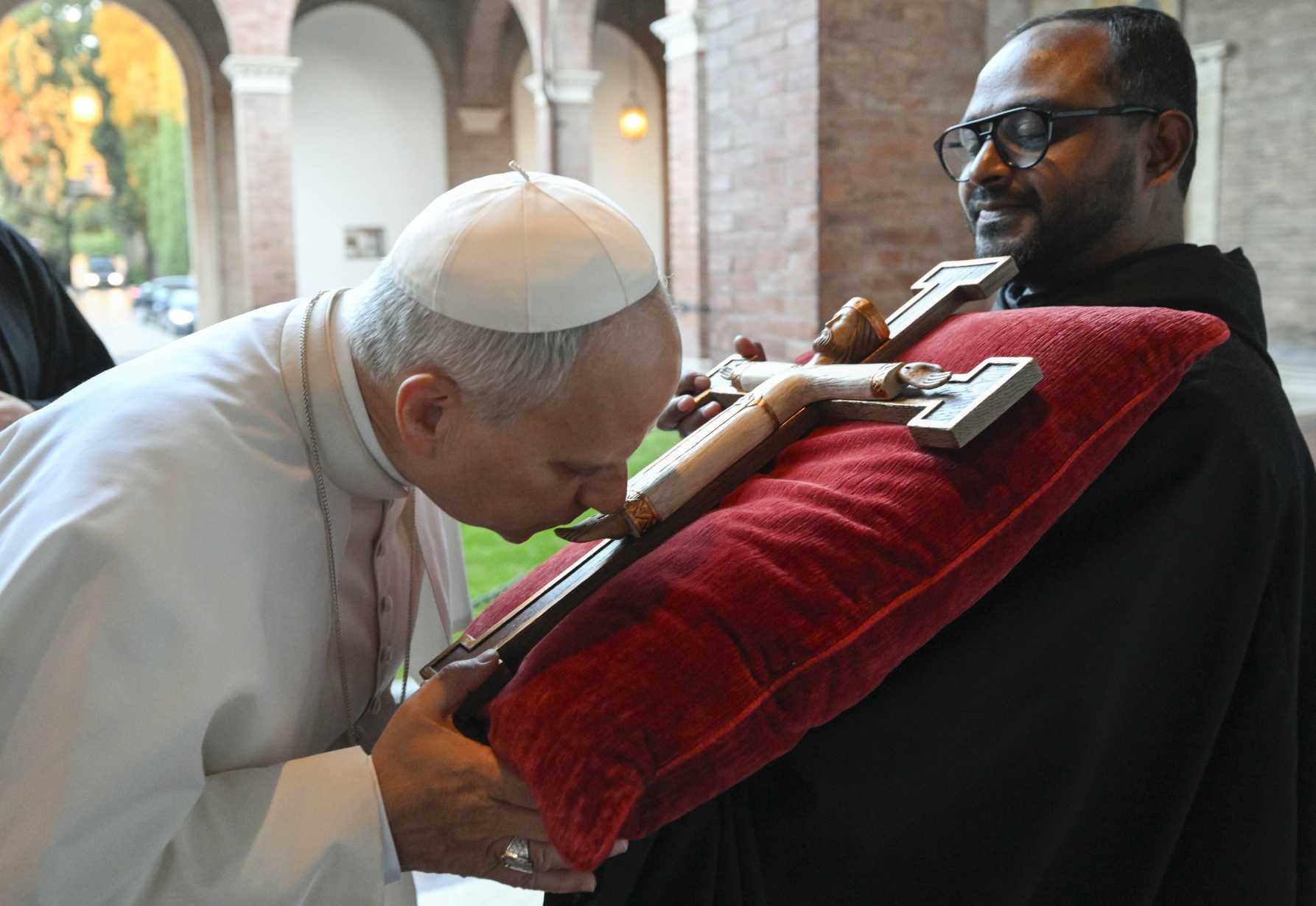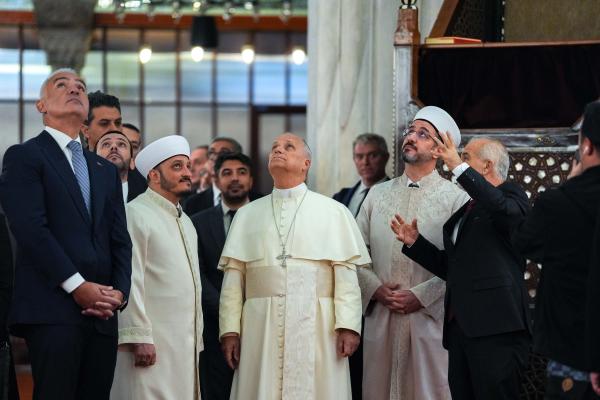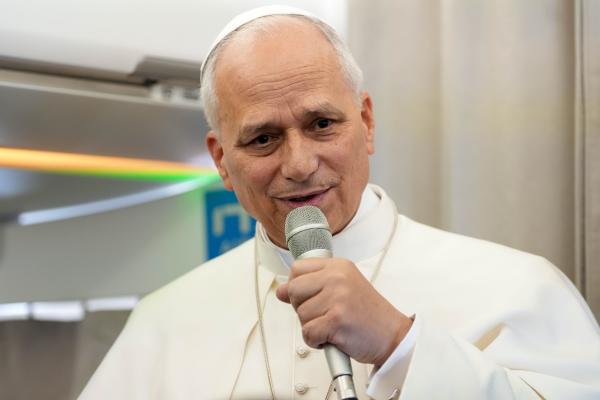Churches should be joyful places of sharing gift of faith, pope says
Pope Leo XIV joined the international Benedictine community at Rome's Church of St. Anselm Nov. 11, the 125th anniversary of the church's dedication.
 Cindy Wooden
Cindy Wooden

Pope Leo XIV kisses a crucifix as he enters Rome's Church of St. Anselm Nov. 11, 2025, the 125th anniversary of the church's dedication. (CNS photo/Vatican Media)
ROME (CNS) -- Pope Leo XIV was given the keys to the Church of St. Anselm on Rome's Aventine Hill, a church whose history is closely tied to his namesake.
In 1888, Pope Leo XIII entrusted a Benedictine archbishop with reopening the former College of St. Anselm and building a church, which was dedicated Nov. 11, 1900.
Abbot Jeremias Schröder, abbot primate of the international Benedictine Confederation, gave Pope Leo XIV the keys when the pope went to celebrate an evening Mass there and mark the 125th anniversary of the church's dedication Nov. 11.
In his homily, Pope Leo said his predecessor was convinced the Benedictines "could greatly contribute to the good of the entire People of God at a time full of challenges, such as the transition from the 19th to the 20th century."
"In our own time, too, there is no shortage of challenges to face," the pope said. "The rapid changes we are witnessing provoke and question us, raising problems previously unknown."
The Benedictines and members of other monastic orders have a role to play in helping people deal with those challenges while keeping their hearts, minds and lives firmly anchored on Christ, he said.
Celebrating the anniversary of the dedication of a church, he said, "marks the solemn moment in the history of a sacred building when it is consecrated to be a place of encounter between space and time, between the finite and the infinite, between humanity and God: an open door toward eternity."
A church building, the pope said, is called to be "a place of joy where we experience the beauty of sharing with others what we have freely received."
The Benedictines have a history of doing that, he said.
"Monasticism from its very beginnings has been a 'frontier' reality, prompting courageous men and women to establish centers of prayer, work and charity in the most remote and difficult places," the pope said. Often their efforts transformed "desolate areas into fertile and rich lands, agriculturally and economically, but above all, spiritually."
Monasteries have been places of "growth, peace, hospitality and unity, even in the darkest periods of history," he said.
Like St. Peter, St. Benedict and other saints, the pope said, "we too can respond to the demands of our vocation only by placing Christ at the center of our lives and mission, beginning with that act of faith which leads us to recognize him as the savior, and translating it into prayer, study and the commitment to a holy life."
The center of life at the monastery, he said, is the liturgy and the prayerful reading of Scripture, but also the academic research of the monks, the pastoral care they offer and the creation of a community with monks who come from all over the world.
Pope Leo prayed that the monastery and its connected university, liturgical institute and pastoral outreach would continue to be "an authentic school of the Lord's service," helping all Catholics be "the people God has made his own, that we may proclaim the marvelous works of him who called us out of darkness into his wonderful light."



